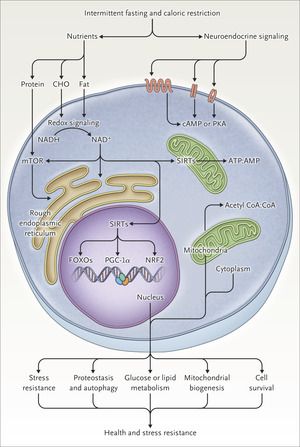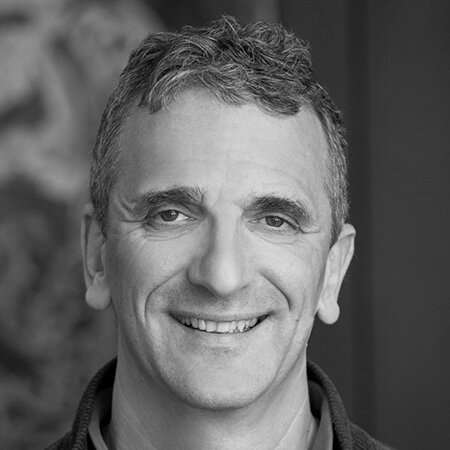We want to look & feel young again, and every year we spend hundreds of billions of dollars on beauty serums, cosmetic surgery, and exotic supplements in the hopes of appearing more vibrant, healthy, and desirable.




The researchers wanted to know how tardigrades protected themselves against such harsh conditions. So Kunieda and his colleagues began by sequencing the genome of Ramazzottius varieornatus, a species that is particularly stress tolerant. It’s easier to study processes within the tardigrade’s cells when the animal’s genome is inserted into mammalian cells, says Kunieda. So researchers manipulated cultures of human cells to produce pieces of the water bear’s inner machinery to determine which parts were actually giving the animals their resistance.
Eventually, Kunieda and his colleagues discovered that a protein known as Dsup prevented the animal’s DNA from breaking under the stress of radiation and desiccation. And they also found that the tardigrade-tinged human cells were able to suppress X-ray induced damage by about 40%.
“Protection and repair of DNA is a fundamental component of all cells and a central aspect in many human diseases, including cancer and ageing,” says Ingemar Jönsson, an evolutionary ecologist who studies tardigrades at Kristianstad University in Sweden.

The Race To Find A Cure For Aging Learn about three pioneers working to turn back the clock ~ via Medium #perpetuallife
https://medium.com/discourse/the-race-to-find-a-cure-for-aging-98676b0318dc
We want to look & feel young again, and every year we spend hundreds of billions of dollars on beauty serums, cosmetic surgery, and exotic supplements in the hopes of appearing more vibrant, healthy, and desirable.

The second thing to mention is that in many instances, we actually have cracked it, at least medically. There are endless cutting-edge treatments being deployed as we speak, and endless additional cutting-edge research projects being conducted. There are new breakthroughs all the time, much of which are awaiting FDA approval, but one thing many of these treatments and cures have in common is that they are developed in a tiny country smaller than New Jersey that happens to be located in perhaps the worst neighborhood on Earth. When it comes to cancer research, Israel leads the way.
Finally, the last time I wrote about cutting-edge cancer treatments, I was contacted by a close friend who is a leading oncologist. He pointed out that a disclaimer is very much necessary when I write these articles. The last thing oncologists need is for their patients to think there is some magical solution here and show up to their appointments with a cut-out of an article. In fact, the last thing a cancer patient needs is false hope.
So the disclaimer is that this company is in the clinical trial phase, and if all goes according to plan, tumors might be much more manageable and treatable than they are today, but a lot has to happen before we get there.

We thank Drs. Michel Bernier and Anne E. Burke for valuable input, Mr. Marc Raley for work on previous versions of the figures, Dr. David G. Le Couteur for assistance with the preparation of an earlier version of the manuscript, and the Intramural Research Program of the National Institute on Aging, National Institutes of Health, for its support.

Writing in Nature Medicine, an international team headed by researchers at University of California San Diego School of Medicine describe a new way to effectively deliver a gene-silencing vector to adult amyotrophic lateral sclerosis (ALS) mice, resulting in long-term suppression of the degenerative motor neuron disorder if treatment vector is delivered prior to disease onset, and blockage of disease progression in adult animals if treatment is initiated when symptoms have already appeared.
The findings are published in the December 23, 2019 online issue of the journal Nature Medicine. Martin Marsala, MD, professor in the Department of Anesthesiology at UC San Diego School of Medicine and a member of the Sanford Consortium for Regenerative Medicine, is senior author of the study.
ALS is a neurodegenerative disease that affects nerve cells in the brain and spinal cord. Motor neurons responsible for communicating movement are specifically harmed, with subsequent, progressive loss of muscle control affecting the ability to speak, eat, move and breathe. More than 5,000 Americans are diagnosed with ALS each year, with an estimated 30,000 persons currently living with the disease. While there are symptomatic treatments for ALS, there is currently no cure. The majority of patients succumb to the disease two to five years after diagnosis.

Raising hope of effective treatment for age-related macular degeneration (AMD), researchers have found that the brain knows how to integrate natural and artificial vision, while maintaining information processing that is important for vision.
AMD is a common cause of severe vision loss in among those aged 50 and over.
Though there is no cure for AMD, significant recent advancements in artificial retina implants may lead to effective treatment.
Healthy Japanese foods make it easy to create a vibrant plate that resembles a nutritional masterpiece. The residents of Okinawa, a Japanese prefecture comprising more than 150 islands in the East China Sea, enjoy the longest life expectancy in the world, according to Blue Zones. On the islands, with a population said to include the largest proportion of people over 100, women and men can expect to live 84 and 90 years, respectively.
It’s no secret that diet plays a major role in longevity. The healthy Japanese foods centenarians in Okinawa reach for each day include a variety of riches from the ocean and the earth.
In Okinawa, bitter melons are called “goya” and they’re often found in vegetable dishes. “Bitter melons have an ‘anti-diabetic’ property where they actually assist in lowering blood glucose levels,” says registered dietitian Melissa Rifkin, RD.